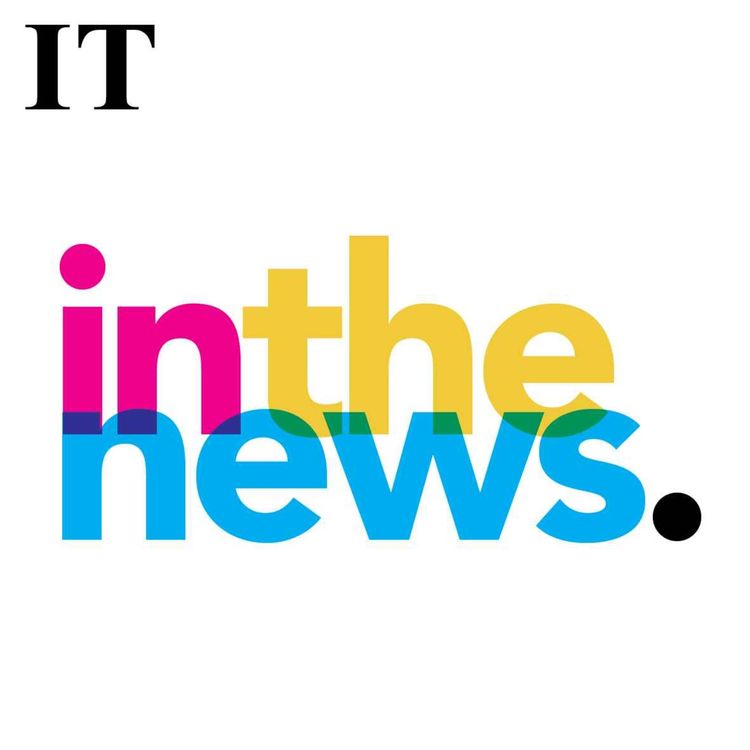Share

In The News
Leaving Cert: Why is there so much emphasis placed on points and third level education?
•
With all the good weather we're having, it can only mean one thing: it’s Leaving Cert season. This morning, around 60,000 students around the country will sit down to English Paper One. For many of them, this marks the beginning of a gruelling CAO points race and a scramble over coveted university places. But with lots of alternative routes into further education available, why is there so much emphasis on the final year exam results? Irish Times education editor Carl O’Brien explains the options available to students, who favour a less stressful route. We also hear from Irish Times intern Katie Mellett, who completed her exams last year.
More episodes
View all episodes

Plum pudding and sea swimming: Irish traditions that have stuck and new ones that have taken off
27:31|It’s Christmas Eve and so much about this time of year is about the things we do and eat – not because we particularly want to do them or even enjoy eating them – but it’s traditional.So what are the traditions we’ve clung to and what are the new ones that have crept up on us?Who sends Christmas cards anymore? And why have Poinsettias, once such an exotic seasonal plant, fallen out of favour?Irish Times feature writer Laura Slattery has been teasing out the traditions that make an Irish Christmas.Presented by Bernice Harrison. Produced by Declan Conlon.
From Traitors to Kneecap: What kept us entertained in 2025
25:10|At a time when there are media think pieces galore about how atomised entertainment is, how people don’t talk about TV like they used to; how the music industry is fractured beyond repair; and how young people are too stuck to their screens to engage in real-life politics, 2025 proved all that wrong.RTÉ’s smash hit reality TV show Traitors Ireland was a ratings juggernaut that dished up endless water-cooler moments. Oasis played two triumphant Croke Park gigs, with all talk about eye-watering ticket prices forgotten in the blazing sunshine and general euphoria. And Kneecap’s frontman Liam Óg hAnnaidh aka Mo Chara’s London court appearances became mini-festivals with music mixing with politics.And then where was Lily Allen’s tell-all album, West End Girl and presidential hopeful Maria Steen and her handbag.These and other much-talked about highlights are picked over by Aideen Finnegan from the Irish Times podcast team and journalist Niamh Browne.Presented by Bernice Harrison. Produced by Suzanne Brennan.
Inside Tommy Robinson’s world: Unholy mix of faith and fury on the streets of London
26:41|British far-right activist Tommy Robinson is the UK’s most notorious anti-Muslim activist.At 43, he is the street leader of the radical right-wing nationalist upsurge gripping Britain.An estimated 150,000 like-minded protesters turned out in London in September for his “Unite the Kingdom” march and for months Irish Times London correspondent Mark Paul has tried to get an interview with him.And then the call came out of the blue on a cold December evening.Robinson was planning a stunt in an hour’s time – to announce the date of his next protest – and would the Irish Times like to come?In the end the stunt failed for technical reasons but Paul got to see how the avowed right-wing radical works and got to shadow him the following day.At a choral service – to “bring the Christ back into Christmas” he got to see how Robinson is mixing his newfound conversion to evangelical Christianity with his anti-immigrant message.Paul tells In the News how Robinson’s new style of campaigning echoes the Maga movement that got Donald Trump elected.Presented by Bernice Harrison. Produced by Declan Conlon and Suzanne Brennan.
2025 was a year of upheaval. But what will it be remembered for?
33:53|2025 was a year of global upheaval, from the activities of the Trump Administration to instability in the Middle East and the reshaping of power politics as China continues its rise. But what will it be remembered for in the long run? Irish Times foreign correspondents Denis Staunton, who is based in Beijing, and Europe correspondent Naomi O’Leary, each picked two events whose impact will be felt into the future. They include the meeting between Narendra Modi, Vladimir Putin and Xi Jinping, a trilateral power meeting in China that said much about the relationship between the US and the rest of the world; the October 10th ceasefire in Gaza, which is broadly holding in a way other ceasefires haven’t; the record S&P stock surge in the US and why it loudly hints at an AI bubble and what that could mean for Ireland; and Europe’s growing willingness to break a taboo, to reconsider the terms of the UN 1951 Refugee Convention which gave immigrants and refugees rights and imposed obligations on European countries.And amid all the gloom there were some lighter moments that struck our two correspondents.Presented by Bernice Harrison. Produced by Declan Conlon.
Why Ireland is under pressure in a battle over European trade
20:12|After 25 years the Mercosur deal is reaching crunch time. The trade deal which would permit free trade between the EU and the South American countries that make up the Mercosur bloc has a deadline of December 20th.It allows the EU to export more cars, wines and spirits to South America, with goods including meat coming the other way – and that’s what worries Iris, but also French, farmers.There are hopes it will be signed off at this week’s two-day EU summit in Brussels; hopes at least on the part of the European Commission and Germany.France and Italy are still holding out on signing up – urging a push-back to January on any decision – while Ireland appears stuck in the middle.Mercosur countries form the world’s sixth largest economy with a total population of 270 million people. It’s a vast market for EU producers.So how will the Mercosur talks play out this week and what pressure will Ireland be put under to sign up to a deal that Irish farmers say would greatly injure not just them, but the economy as a whole.Presented by Bernice Harrison. Produced by Declan Conlon.
What was the greatest Irish sporting moment of 2025?
48:26|The 2025 roll call of Irish sporting heroes is long and notable for the variety of sports that saw stunning feats of excellence.Golfing great Rory McIlroy made history at The Masters; a new athletics star was born in Kate O’Connor; and Troy Parrott made football fans of us all with his stellar performance against Hungary to keep our World Cup dreams alive.And there were so many more sporting moments – including surprise retirements – throughout the year that set records and pulses racing.Irish Times sports writers Malachy Clerkin and Muireann Duffy give their sporting highlights from 2025.Presented by Bernice Harrison. Produced by John Casey.
Irish politics in 2025: which stories really mattered?
33:42|What were the big political stories of 2025? Were there issues we were obsessed with at the time and now can’t quite remember why? And were there any laughs to be had around Leinster House?For a look back on the year in Irish politics, Irish Times political correspondents Ellen Coyne and Jack Horgan-Jones came into the studio with their standout stories – from the fretting about the threat of US tariffs to the highs and lows of the presidential election; and from Paschal Donohoe’s exit for a more glamorous job to the Government’s new housing manifesto.Then there was Tipperary North TD Michael Lowry’s unparliamentary sign language.And what exactly are “country pursuits” and why did they emerge as a talking point during the presidential election.Presented by Bernice Harrison. Produced by Suzanne Brennan with Andrew McNair on sound.
Crime 2025: The stories that made the headlines
28:01|One of the most shocking stories of the year was the disappearance of Kerry farmer Michael Gaine, whose dismembered body was found on his farm almost two months after he went missing. This murder remains unsolved.In June, Evan Fitzgerald (22) walked into a busy shopping centre in Carlow and opened fire. He then turned his weapon on himself and ended his own life.The year also saw some high-profile court cases, including the trial of Richard Satchwell, who was found guilty of murdering his wife, Tina. And there was the case of former superstar hurler DJ Carey, who was given five and a half years in prison for deception and fraud.For Crime and Security Editor Conor Lally, three stories stood out – for the events themselves but also for what they tell us about crime and policing in Ireland in 2025: the missing toddler Daniel Aruebose, whose absence went unnoticed for years and whose death is now a homicide inquiry; the discovery in Portlaoise of a far-right group who were allegedly planning an attack on Galway Mosque and the extradition of Sean McGovern from Dubai. Presented by Bernice Harrison. Produced by Suzanne Brennan.
Will Australia’s social media ban for children come to Ireland?
22:51|This week, Australia became the first country in the world to impose a social media ban for children aged 16 and under.Welcomed by parents there but criticised by big tech and some free-speech advocates, the ban will see companies such as Facebook, Instagram and TikTok face massive fines if they fail to take reasonable steps to remove the social media accounts of Australian children. And to stop children getting such accounts in the first place.Ireland is also taking steps to make children safer online, with a Government push to design a digital wallet linked to social security numbers as proof of age. And the Department of Health’s online safety taskforce will also lay out its proposals today.Irish Times Political Correspondent Ellen Coyne explains the Government’s advanced plans to protect children from accessing harmful material online.Presented by Bernice Harrison. Produced by Suzanne Brennan and Andrew McNair.